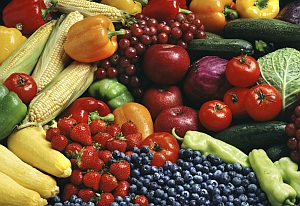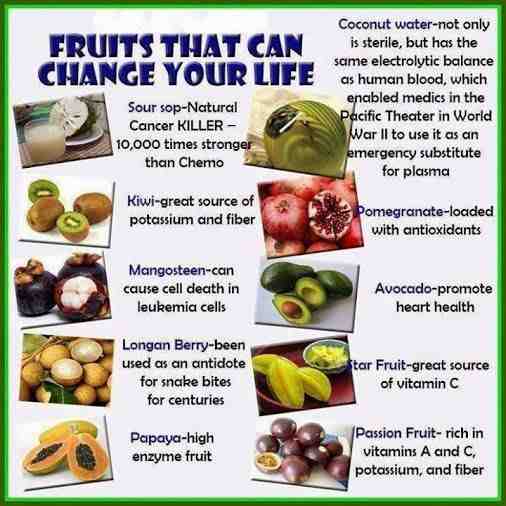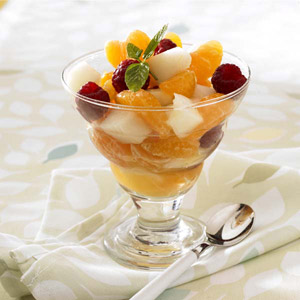To eat a banana or not – that is the question. Fruit on a diet can be an enigma. On one hand dieters hear
“fruit is a great diet choice!”
Then it is announced:
“Too much fruit can make you gain weight!”
Which is true? Actually, both are true. It all depends on the fruit; raspberries, cranberries and blackberries are excellent; grapes, bananas and cherries not so much.
That statement is not meant to put down those tasty and nutritious grapes and bananas and cherries. Rather it is a warning that not all fruits are created equal.
Most fruit contains large amount of natural sugars that converts into fat (a handful of grapes is fine; a grape binge is not). There are some fruits (especially in the berry family) that can even help burn fat.
Although loaded with vitamins and antioxidant, fresh fruit has contains calories and carbohydrates. A dieter must consider the nutritional benefits of fruit versus the caloric negative side.
Consider the following Fruit Facts

- Most fruits have a low glycemic load.
- Fruits provide fiber to your diet, which will slow digestion and make you feel fuller.
- Fruits like blueberries are source of antioxidants, which can help lower your blood pressure, fight off oxidative stress, and in some cases work at the DNA level to aid in weight loss.
- Fruit is high in the simple sugar fructose. Your liver processes fructose. If the liver has sufficient energy, that fructose can be turned into fat.
- Fruits helps blood circulation and boost immune system. Fruit can improve digestion.
- A fruit diet is a good detoxification medium.
- Eaten properly, fruits may ensure weight loss without causing any harm to the body.
A caveat: No fruit is bad, it’s the quantity consumed that can backfire on a dieter.
Best fruits: Raspberries, blackberries, cranberries, strawberries and blue berries, grapefruits
Good fruits: Peach, nectarine, cantaloupe, apple, and papaya and the melons (watermelon, musk melon, honey dew, cantaloupe)
Fruits to eat in moderation: Banana, plum, pear, kiwifruit, pineapple, mango, grape, and fig are all high in carbohydrates. Dried fruits like raisins, dates, and prunes.
Unexpected fruits: Avocados and tomatoes

Sugar Levels in Fruits
- Low in Sugar: Rhubarb, Raspberries, Blackberries, Blueberries, Cranberries, Strawberries, All Melons, and Papaya, Peaches, Nectarines, Apples, Guavas, Apricots, Grapefruit
- High in Sugar: Plums, Oranges, Kiwifruit, Pears and Pineapple
- Very High in Sugar: Tangerines, Cherries, Grapes, Pomegranates, Mangos, Bananas and Dried Fruit
To eat a banana or not – that is the question. The answer: Yes! But a few blueberries might be better for a dieter.



